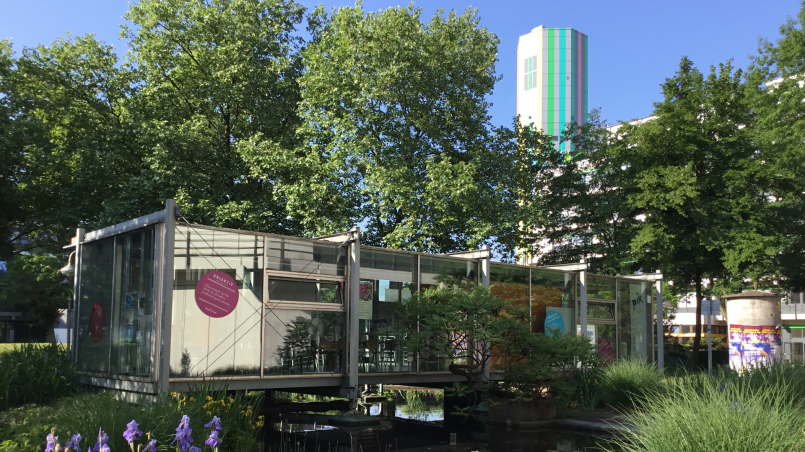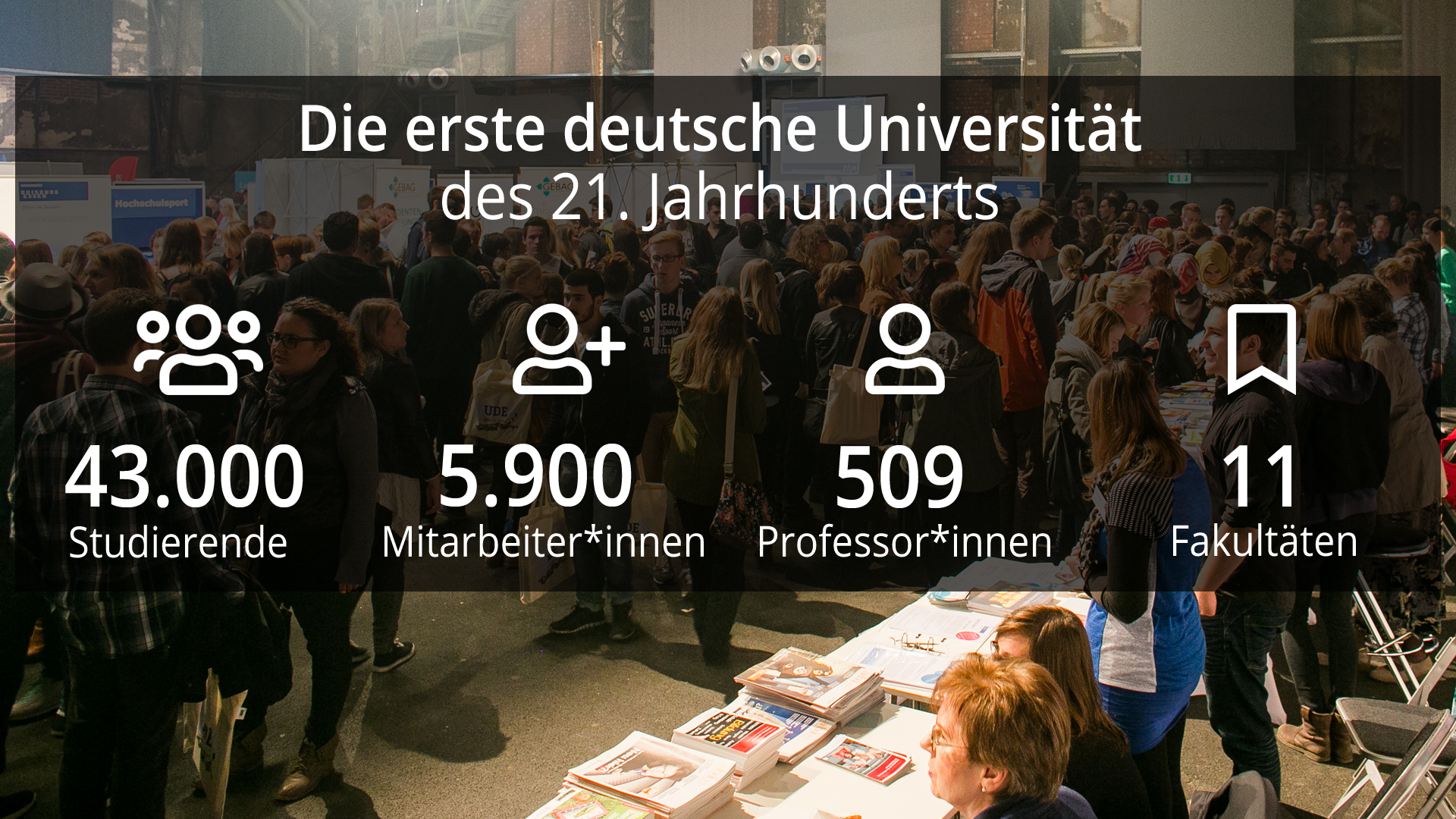
University research and education gain particular relevance when scientific results do not remain within the world of science, but are exchanged with the university environment - and this includes civil society, business enterprises and interlocutors from politics, culture and the media. Knowledge generation and basic research are central tasks of a university. More applied research and the transfer of the knowledge generated are also important university missions.
Transfer is of great importance to the UDE. Conscious of our responsibility, we drive knowledge to the common state of knowledge and invention to innovation. We have created the necessary structures for this. For example, there are eleven affiliated institutes, a large university medical center and many spin-offs - this is how the impact of our science and its relevance reaches society. Whether mobility and energy transition, resource use, biodiversity decline, water management or climate change: we aim to interact with our environment with the outcome of our research. With our cutting-edge research, we offer high-performance, science-based solutions for the key issues of our time. When it comes to scientific and technological innovations, we consider socio-political processes and explore transformative potential. At the same time, UDE leads social discourse, is active in political consulting and interacts with the region, cities and schools, for example in the area of district development.
We are focusing on sharpening our transfer self-image and increasing internal and external awareness. The aim is to exploit transfer potential and strategically position transfer activities. We are expanding strategic partnerships, for example within the University Alliance Ruhr on “start-up factories” and within the EU network AURORA on “social entrepreneurship”. Concepts are being developed to strengthen science communication and to implement the start-up concept in the humanities and social sciences as well as in the culture of the UDE. Transfer clusters, a partnership model and the Master's degree course in Sustainable Innopreneurship are new approaches that we are testing.




